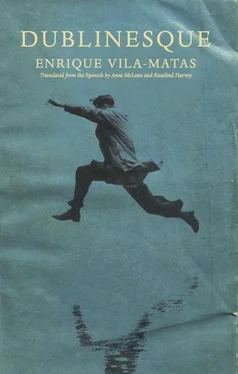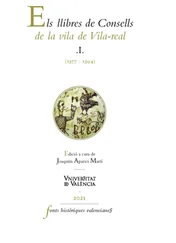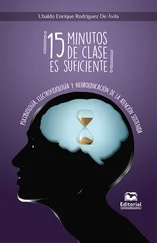“What are you thinking about?” asks Celia.
Being interrupted annoys him and he reacts strangely and tells her he was thinking about the dining-room table and the hall chairs, which are perfectly real, and about the fruit basket that belonged to his grandmother, but that, however, he is also thinking that any madman could step through the door at any point and remark that things aren’t so clear.
He is immediately filled with dismay, as he realizes he has muddled things up unnecessarily. Now his wife is indignant.
“What chairs?” says Celia. “What hall? And what madman? You must be hiding something from me. I’ll ask you again. What are you thinking about? You haven’t started drinking again, have you?”
“I’m thinking about my catalog,” says Riba, lowering his head.
Since he stopped drinking, he barely has any domestic quarrels with Celia. This has been a great step forward in their relationship. Before, they used to have really awful fights, and he never once tried to rule out the thought that he, with his damned drinking, was always the guilty party. When the arguments were really bad, Celia used to pack a few things in her suitcase, which she then took out of the apartment to the landing. Afterward, if she got tired, she went to bed, but left the suitcase out there. In this way the neighbors always knew when they’d had a fight: the suitcase reflected what had gone on the night before. Shortly before he had his collapse, Celia really did leave him and spent two nights away from home. If he hadn’t had health problems and been forced to stop drinking, it’s more than likely he would have ended up losing his wife.
Suddenly he tells her that he’s thinking of going to Dublin on the sixteenth of June.
He tells her about his parents’ wedding anniversary and also about Joyce’s Ulysses , and finally about his dream, his premonition, especially about being drunk outside a pub called the Coxwold, the two of them weeping copiously and inconsolably, sitting on the ground at the end of an Irish side street.
He has tried to tell her too much too quickly. What’s more, he has the feeling that Celia is only one step away from telling him that, although the absence of alcohol in his life and his daily fourteen hours of isolation in front of the computer have calmed him down and are without doubt a blessing, they are making him increasingly autistic. Or, to be precise, more hikikomori .
“Dublin?” she asks, surprised. “And what are you going to do there? Start drinking again?”
“But Celia —” he makes a gesture as if arming himself with patience, “ — the Coxwold is just a pub in a dream.”
“And if I’ve understood correctly, it’s also the place of a premonition, dear.”
Riba has been interested for days in everything surrounding the subject of the hikikomori , young Japanese people who suffer from autism in front of the computer, and who, in order to avoid outside pressures, react by withdrawing completely from society. In fact, the Japanese word hikikomori means “isolation.” They shut themselves up in a room in their parents’ house for prolonged periods of time, usually years. They feel sad and have hardly any friends, and the vast majority spend the day sleeping or lying down, and at night watch television or concentrate on the computer. Riba is very interested in the topic because, since he left publishing and stopped drinking, he has been withdrawing into himself, and in effect, turning into a Japanese misanthrope, a hikikomori .
“I’m going to a funeral in Dublin for the age of print, for the golden age of Gutenberg,” he tells Celia.
He doesn’t know how it happened, but it just came out. Her eyes burrow into him. Silence. Unease. Before she starts shouting, he begins to explain.
“What I mean is the funeral, ever delayed, of literature as an endangered art. Although really the question should be: what danger?”
He notes that he has got himself tied into knots.
“I would understand perfectly,” he continues, “if you asked me that question. Because the fact is the thing that interests me most about this danger is its literary nuances.”
He thinks that now his wife will unleash her anger; instead the opposite happens, as he starts to sense a sudden warmth, a certain sort of loving intensity. But it’s also as if Celia has taken pity on him. Can that be it? Or maybe she’s taken pity on the golden age of Gutenberg, which perhaps in this case is the same thing? Or is she fond of danger, seen from a literary point of view?
Celia looks at him, and asks him if he remembers asking her some days ago to rent the only David Cronenberg film he hasn’t yet seen. She shows him the DVD of Spider she has just got out, and affectionately suggests they watch it before dinner.
He does indeed like Cronenberg, one of cinema’s last real directors. But it all seems a little strange to him, because he never asked to watch this film. He glances at the DVD and reads that the film is about “a lonely man failing to communicate in an inhospitable world.”
“Is that me?” he asks.
Celia doesn’t even answer.
In the opening sequence of the film, a young man called Spider is the last person to get off the train, and it’s clear right away that he’s different from the other passengers. Something seems to have seriously clouded his brain, and he stumbles as he alights with his small, strange suitcase. He is handsome, but he has all the signs of being highly mentally-disturbed, maybe a lonely man failing entirely to communicate with an inhospitable world.
Celia asks Riba if he’s noticed that, in spite of the heat, Spider is wearing four shirts. Well, no, he hadn’t noticed this peculiar detail. He excuses this by saying he hasn’t yet had time to focus on the film. Besides, he says, he doesn’t normally notice those kinds of details.
Now he troubles himself to count the shirts. And he sees it’s true. The man is wearing four in the middle of summer. And what about the suitcase? It’s very small and old, and when Spider opens it, we see it contains only useless objects and a little notebook where, in minuscule handwriting, he writes down his illegible impressions.
Celia asks him about Spider’s handwriting, she wants to know if it doesn’t remind him of Robert Walser’s when it became microscopic. Well it’s true, that is what it’s like. The introverted, microscopic calligraphy of the frail young man who answers to the name of Spider makes one think of the days when, before he entered the first lunatic asylum, the handwriting of the author of Jakob von Gunten became gradually smaller and smaller, due to his obsession with disappearance and eclipse. Then Celia wants to know if he’s noticed that there is scarcely anyone on the streets of London’s gloomy, inhospitable East End, through which Spider is wandering.
He notices that Celia hasn’t stopped asking him questions since the film began.
“Has someone asked you to find out if I can still concentrate and notice things in the outside world?” he finally asks her.
Celia seems used to him talking to her like this and his answers coming at her from unexpected directions, not necessarily connected to his questions.
“What you have to do is to love me. The rest doesn’t matter,” she says, emphatically.
Riba makes a mental note of the phrase, jotting everything down this way. He wants to type it up later in a Word document he keeps open on his computer where he collects phrases.
What you have to do is to love me. The rest doesn’t matter. This is new, he thinks. Or maybe what’s happened is that she used to put it a different way. It may well be a Buddhist saying, who knows.
Soon it seems to him that Spider is listening in and spying on his conversation, even his thoughts. Might he himself be Spider? He can’t deny he feels drawn to the character. What’s more, deep down, he would like to be Spider, because he completely identifies with him in some aspects. For him, he’s not just a poor madman, but also the bearer of a subversive kind of wisdom, the sort of wisdom Riba has found very interesting since closing down the publishing house. Maybe it’s an exaggeration to think he’s Spider. But hasn’t he been accused many times of reading his life as if it were the manuscript of an unknown author? How many times has he had to listen to people tell him he reads his life anomalously, as if it were a literary text?
Читать дальше












